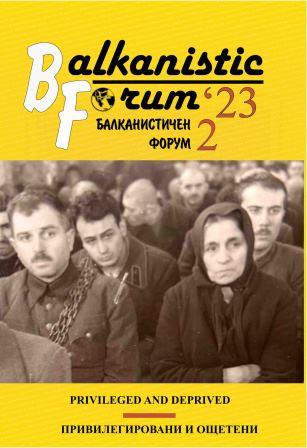Джендър маркирани фразеологизми в българския език – аспекти на семантиката и стилистичната им маркираност
Gender Marked Phraseologisms in Bulgarian – Aspects of their Semantics and Stylistic Marking
Author(s): Nadezhda StalyanovaSubject(s): Language and Literature Studies, Applied Linguistics, Semantics, Sociolinguistics
Published by: ЮГОЗАПАДЕН УНИВЕРСИТЕТ »НЕОФИТ РИЛСКИ«
Keywords: gender inclusive language; semantics; phraseology
Summary/Abstract: The paper explores the language-society relationship in the context of gender-neutral language, a part of inclusive communication that aims to avoid referring to a person's gender while inappropriately highlighting or attributing positive or negative characteristics exclusively associated with one gender. The analysis is situated in the linguistic aspect of so-called gender-sensitive language or gender-neutral language. The text studies the semantics of two phraseologisms in Bulgarian perceived as discriminatory, negatively marked and suggesting gender stereotypes. In order to investigate and analyze the reception and use of the phraseologies мъжка дума (man’s word) and мъжко момиче (man like girl) by school-age youth, we conducted a survey among respondents between 15 and 17 years old. The aim of the study was to analyze to what extent young people perceive the connotative meaning of the phraseologisms, whether they realize their semantics as evaluative and characterizing a certain type of behavior. The questions in the survey are devoted to the stylistic and connotative meaning of the studied expressions. The findings of the study show that phraseologisms with a component indicating a person's biological sex and expressing a certain attitude towards its stereotypical perception in society are not part of the active vocabulary of the Bulgarian students. Young people experience difficulties in defining their semantics. The text predicts that their reduced use in the near future will not be the result of policies enforcing the principles of inclusive communication. These phraseologies will naturally pass into the passive part of the lexical system due to ignorance of their semantics.
Journal: Балканистичен Форум
- Issue Year: 32/2023
- Issue No: 2
- Page Range: 313-322
- Page Count: 10
- Language: Bulgarian
- Content File-PDF

